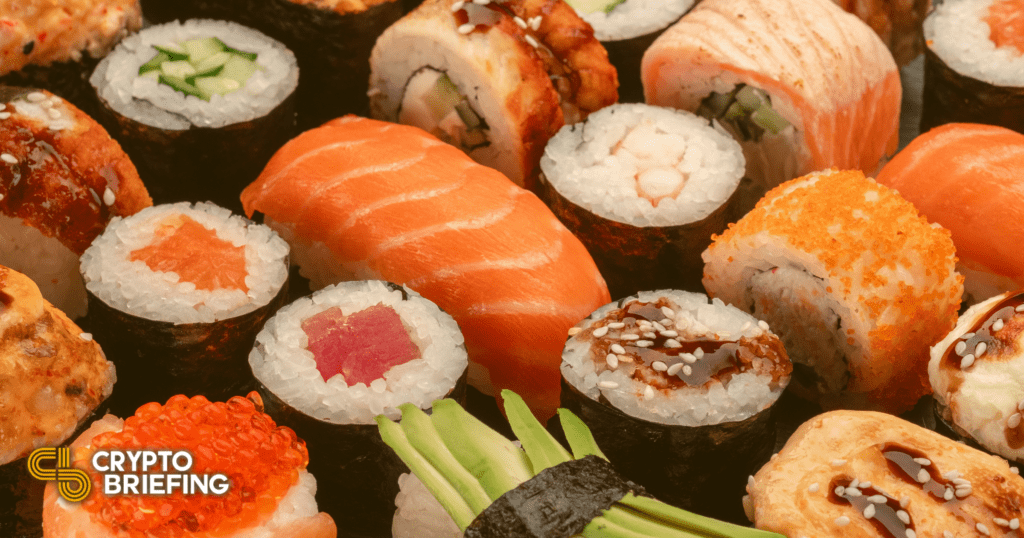
Shutterstock cover by Andrei Iakhniuk
Eden to Protect Sushi Traders from MEV on Ethereum
Eden Network is integrating Sushi to protect traders against MEV.

Powered by Gloria
Eden, formerly known as ArcherDao, has rolled out its MEV-mitigation network for Sushi.
Eden Network Goes Live
Transaction ordering protocol Eden has launched its network to protect Ethereum traders from miner extractable value (MEV) attacks.
To start off, the project has integrated its solution on Sushi, one of the most used decentralized exchanges on Ethereum mainnet DEXs. Sushi contains over $2.5 billion in total value locked.
Speaking of the launch and Ethereum’s upcoming EIP-1559 update, Eden Network core developer Caleb Sheridan said:
“EIP-1559 is the most important upgrade in the history of Ethereum. While it solves some of its major problems, like high gas fees and priority gas auctions, it creates others by slashing block producer revenue, which inadvertently incentivizes MEV. Eden Network is designed to complement the design of EIP-1559 while addressing the MEV problem head on by introducing a new transaction network that helps block producers make up lost revenue in exchange for protecting traders from MEV.”
MEV refers to the amount of value a miner can extract as profits by reorganizing blocks and frontrunning transactions. Other than Ethereum’s high gas fees, which can make the network unusable during periods of peak congestion, MEV is one of the smart contract blockchain’s biggest issues.
Flashbots estimates that over $800 million has been lost to MEV since the beginning of 2020. Eden Network hopes to address this issue.
Eden functions by allowing transactions to bypass Ethereum’s public mempool. Instead, it uses a private transaction relay infrastructure called Taichi, where transactions are relayed to SparkPool directly.
Eden is a fork of ArcherDao—its predecessor network that was integrated on Sushi as an MEV mitigation network in mid-July.
With the latest integration, Sushi traders will be able to access MEV protection as an optional feature through the exchange’s interface.
Sushi users can pay and lease priority slots on Eden Network to assure their transactions can be added to the next Ethereum block.
Priority slots on the network can be tokenized and slot tenants can be determined with an auction mechanism using its native token, EDEN. The token can be used to incentivize miners to protect them from various kinds of MEVs executed through bots.
Preventing MEV means Sushi traders can save significant amounts of funds on larger trade sizes, especially on pairs with low liquidity.
In addition to Sushi, Eden Network has also partnered with Alpha Finance Labs and Band Protocol.

